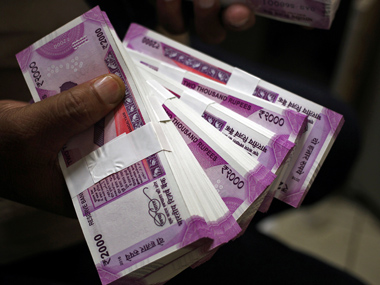New Delhi: Most privatised CPSE witnessed improvement in net worth, profit, gross revenue and sales growth after the transition, the Economic Survey has said. The survey, tabled in Parliament on Friday, examined the change in performance for each individual central public sector enterprises (CPSE). It studied the movement in major financial indicators for each of the firm ten years before and after the year of strategic disinvestment or privatisation. Taken individually, each privatised CPSE witnessed improvement in net worth, net profit, gross revenue, net profit margin, sales growth in the post-privatisation period compared to pre-privatisation period except for Hindustan Teleprinters, MFIL and Tata Communications in the case of few indicators. it said. [caption id=“attachment_6013191” align=“alignleft” width=“380”] Representational image. Reuters[/caption] Disinvestment improves firms’ performance and overall productivity, and unlocks their potential to create wealth. This would have a multiplier effect on other sectors of the economy, according to the survey. Aggressive disinvestment, preferably through the route of strategic sale, should be utilised to bring in higher profitability, promote efficiency, increase competitiveness and to promote professionalism in management in CPSEs, the survey advocates. It observes that the focus of the strategic disinvestment needs to be to exit from non-strategic business and directed towards optimising economic potential of these CPSEs. This, it said, would, in turn, unlock capital for use elsewhere—especially in public infrastructure like roads, power, transmission lines, sewage systems, irrigation systems, railways and urban infrastructure. It is encouraging that the enabling provisions by the Department of Investment and Public Asset Management (DIPAM) are already in place, it added. According to the survey, the Cabinet has in-principle approved the disinvestment in various CPSEs. These need to be taken up aggressively to facilitate creation of fiscal space and improve the efficient allocation of public resources. The survey noted that there are as many as 264 CPSEs under 38 different ministries/departments. Of these, 13 ministries/departments have around 10 CPSEs each under its jurisdiction. It is evident that many of the CPSEs are profitable. “However, CPSEs have generally underperformed the market as is evident from the average return of only 4 percent of BSE CPSE index against the 38 percent return of BSE Sensex during the period 2014-2019. The aim of any privatisation or disinvestment programme should, therefore, be the maximisation of the government’s equity stake value,” it said. The survey also suggested that the government can transfer its stake in the listed CPSEs to a separate corporate entity. This entity would be managed by an independent board and would be mandated to divest the government stake in these CPSEs over a period of time. This will lend professionalism and autonomy to the disinvestment programme which, in turn, would improve the economic performance of the CPSEs, it added. In November 2019, the government gave in-principle approval to reduce government of India’s paid-up share capital below 51 percent in select CPSEs. To examine the efficiency gains from privatisation and whether the purported benefits of privatisation have indeed manifested in the Indian context, the survey analyses the before-after performance of 11 CPSEs that had undergone strategic disinvestment from 1999-2000 to 2003-04, it said.
It observes that the focus of the strategic disinvestment needs to be to exit from non-strategic business and directed towards optimising economic potential of these CPSEs.
Advertisement
End of Article


)

)
)
)
)
)
)
)
)



